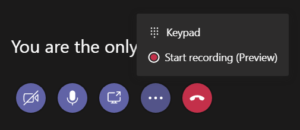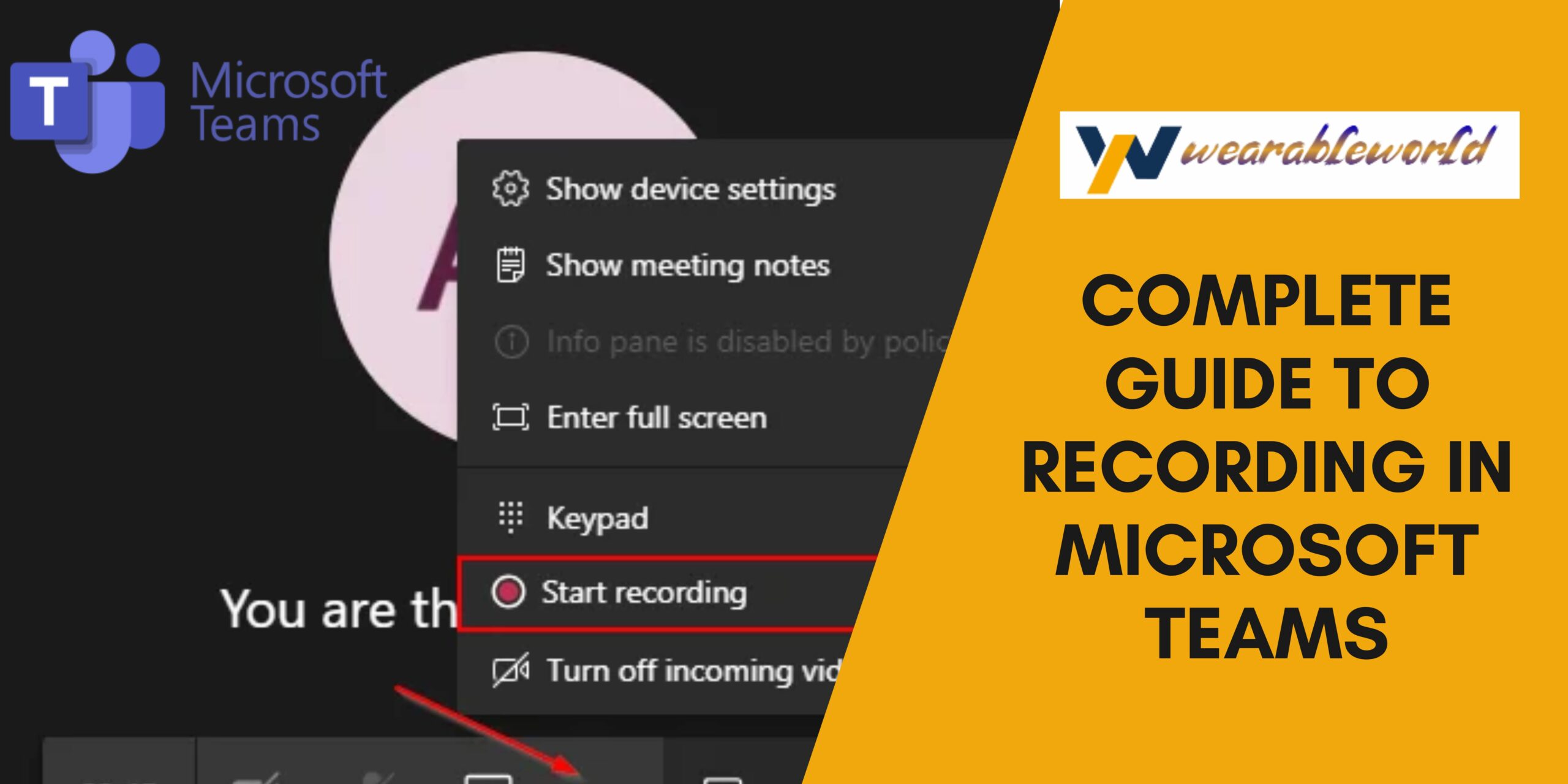Recording in teams can be a great way to capture and document teamwork. Whether you are a start-up or an established company, recording your team’s work can be a valuable tool for managing and improving your team’s performance.
Things to Keep in Mind Before Recording in Microsoft Teams
When it comes to recording in teams, it is important to keep in mind the following tips:
1. Set up a clear and concise plan: Before you even start recording, make sure you have a clear and concise plan. This will help you organize and streamline the process.
2. Use tools to help you stay organized: There are a number of tools that can help you stay organized while recording in teams. Some of these include chat applications, video management tools, and collaboration tools.
3. Set boundaries and expectations: It is important to set boundaries and expectations for your team while recording. This will help ensure that everyone is working towards the same goal and that there are no conflicts.
4. Be prepared to adapt: When it comes to recording in teams, you’ll likely have to adapt a few times. That’s okay – it’s part of the process. Just keep in mind that it’s important to be flexible and responsive to changes.
Also Read: How to Fix Microsoft Teams Not Loading
By following these tips, you’ll be able to record in teams with ease.
What are the Benefits of Recording in Microsoft Teams?
There are many benefits to recording in teams:

- First and foremost, it allows you to share the workload more evenly and make the overall project go more smoothly.
- Secondly, it allows you to get feedback and criticism from a larger number of people, which can help you to improve your work quickly.
- Finally, it can create a sense of community and work together, which can be beneficial both professionally and personally.
What are the Best Methods to Record in Microsoft Teams?
Recording in teams can be a great way to get work done and improve productivity. Here are some tips for recording in teams:
1. Make sure everyone is on the same page: If everyone is recording their own version of the conversation, there is likely to be confusion and chaos. Make sure everyone knows what they’re supposed to be recording and when they’re supposed to be recording it.
2. Use tools to help you track progress: There are a number of tools available to help you record in teams, such as meeting minutes or collaborative whiteboards. These tools can help you keep track of what has been said, who has made what contribution, and how the conversation has progressed.
3. Use video recording as a way to improve communication: By recording video, you can capture interactions in a way that is easy to share and review. This can be especially helpful if someone has difficulty recalling specific details from a conversation.
4. Be prepared to re-record parts of the conversation: As with any conversation, there are likely to be moments when one or more participants forget what was said. This is why it is important to have a backup recording of the conversation. By being prepared to re-record parts of the conversation, you can ensure that everyone is properly recorded and that any errors are caught in the first place.
What are the Most Common Mistakes Made While Recording in Teams?

When it comes to recording team meetings, the key is to make the most of the time you have together. By taking the time to prepare, you can maximize your recording sessions and ensure that all team members are heard.
Here are a few tips to help you make the most of your team recordings:
1. Establish ground rules upfront: Before you even start recording, make sure everyone is on the same page about what is and isn’t allowed during the meeting. This will help avoid any potential conflicts or misunderstandings later on.
2. Make sure everyone is comfortable speaking: If everyone is speaking at the same time, it can be difficult to hear anyone. To ensure that everyone is heard, try to break up the discussion into smaller groups and have everyone share their ideas.
3. Use visual aids: If you have any visual aids or diagrams that you want to include in your recordings, make sure to bring them along. This will help to illustrate your points and make sure that everyone is clear about what you’re trying to say.
4. Take notes
While you’re recording, make sure to take copious notes so that you can easily reference the conversation later on. This will help you to remember everything that was said, and you won’t have to search for elusive quotes.
By following these tips, you can ensure that your team recordings are effective and efficient.
What are the Most Common Mistakes Made When Recording in Teams?
- Not setting clear and concise goals: If you don’t have any specific goals in mind when you start recording, it’s easy to drift and end up recording without any real purpose. Try to come up with specific, achievable goals to work towards as a team and make sure everyone is on the same page. This will help to keep everyone motivated and focused.
- Not agreeing on who records what: If everyone is recording without clearly agreeing on who should be recording what, the recordings will be inconsistent and difficult to manage. Make sure there’s clear communication about who is responsible for recording what and make sure everyone is aware of the deadline for recording.
- Not setting clear ground rules: Once you have set goals and ground rules, it’s important to make sure everyone is following them. If there are any disagreements, make sure to hash out a solution before things get too contentious. This will ensure that everyone is happy with the end result and that the recordings are accurate and useful.
- Not having a plan: If you don’t have a plan for how you’re going to use the recordings, you’ll be left with a lot of unusable footage. This is especially important when it comes to video recordings – if you don’t have a specific goal in mind, it’s easy to end up with footage that’s just a mess. Come up with a rough outline of what you want to achieve, and then work towards that.
Learn More: How Expensive Is a Barndominium
Conclusion
As businesses increasingly rely on digital technology to manage their operations, the need for effective communication within teams has increased. One way to achieve effective communication is through the use of recording software. This article discusses the benefits of recording in teams and provides tips on how to get the most out of recording software.



